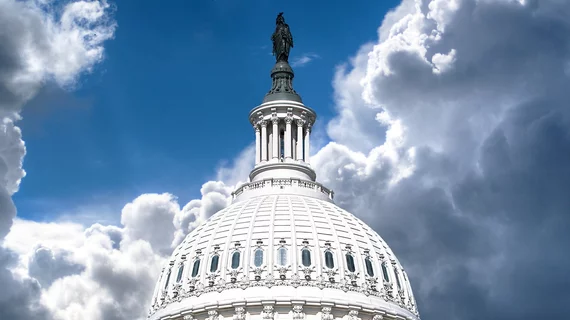US Senators release draft plan to partially protect radiologists from Medicare cuts
The U.S. Senate Committee on Finance has proposed draft legislation that would minimize Medicare cuts set to hit radiologists and other physicians on Jan. 1.
CMS issued the final 2024 physician fee schedule on Nov. 2, including a 3.4% reduction to the conversion factor used to convert RVUs into payment. Absent any congressional action, diagnostic radiology will face a 3% pay decrease, while interventional specialists can expect an aggregate 4% reduction. The same day, senators issued legislation that would mitigate 1.25% of the cut, along with several other policy changes.
The American College of Radiology said Monday that it appreciates the proposal, which is part of senators’ markup of the Better Mental Health Care, Lower-Cost Drugs, and Extenders Act.
“The committee’s action is a result of ongoing efforts by the American College of Radiology and all of medicine to reduce and/or eliminate the scheduled 2024 Medicare physician cuts,” Cynthia Moran, ACR’s executive VP of government relations, economics and health policy, told Radiology Business. “The ACR will continue to work through the rest of the year with its provider colleagues to stop the entire cut before Congress adjourns.”
The Senate Finance Committee is slated to review the discussion draft on Nov. 8, according to an announcement. The full text of the discussion draft is available here.
Inside Health Policy first reported the news (subscription required).

